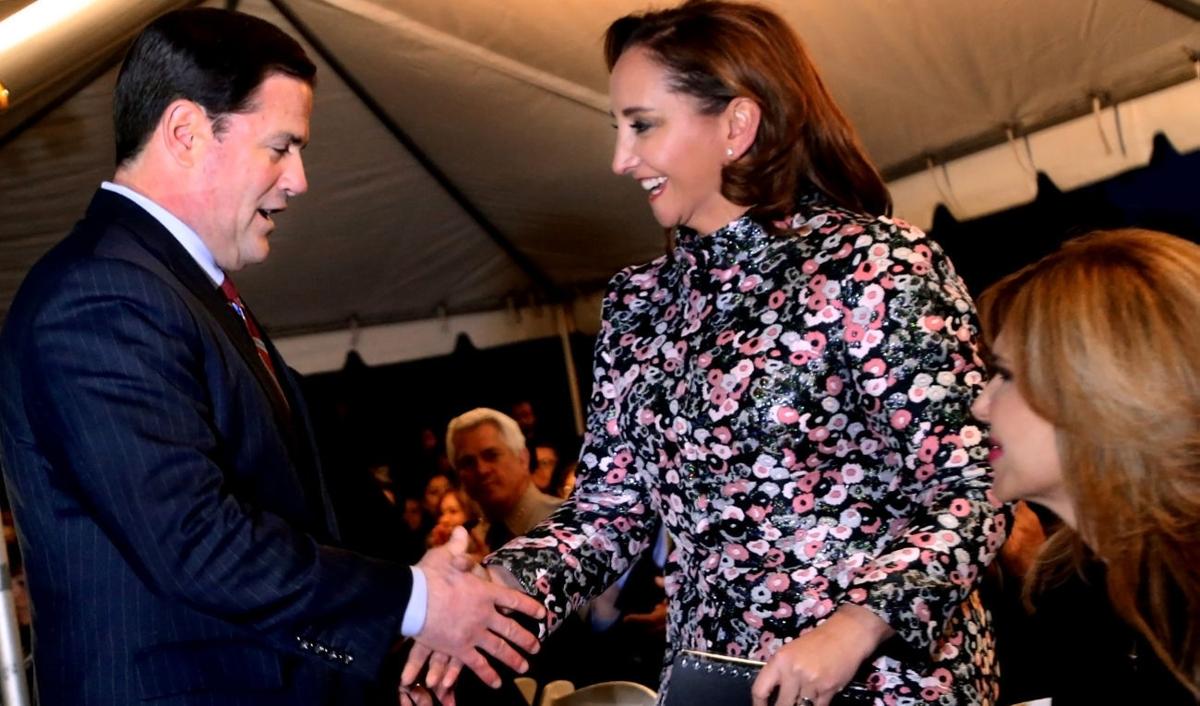The United States and Mexico, increasingly two countries that are part of one community, must start thinking binationally at a regional level, a top Mexican official said.
That’s part of a new reality in this century, said Claudia Ruiz Massieu, Mexican secretary of foreign affairs. “We have to start thinking more about what we can do from an integrated perspective and less about what two different countries with two different ideas would do separately,” she said.
The secretary, who visited Tucson on Tuesday, met with representatives of the Mexican community, business leaders and local government officials, as well as with Gov. Doug Ducey.
She noted not only Arizona’s strong economic relationship with Mexico — which includes Mexico being the state’s No. 1 trading partner, and Mexican tourists spending more than $2 billion here every year — but also the cultural ties that bind the region.
This unity should be promoted and strengthened, she said, as North American countries look to become more integrated to increase their competitiveness and productivity.
Part of that integration is freer mobility for people in North America, Ruiz Massieu said, so Canada, the U.S. and Mexico can benefit from a shared human resources pool.
Already Canada is planning to eliminate a visa requirement for Mexican visitors. She said that in the U.S., student exchanges are a good place to start exploring that idea.
“The more you foster the understanding between peoples, and that understanding is fostered through academic mobility, through tourism, the more it will be easily recognized that we need to have people moving about freely,” she said.
As part of her visit to Tucson, Ruiz Massieu officially inaugurated the Mexican Consulate’s new offices at 3915 E. Broadway, which opened in March. The consulate is a model, she said, both in terms of the building space and the incorporation of best practices developed throughout the consular network.
The consulate is also home to the newly launched Center for Information and Assistance to Mexicans, a call center that handles everything from inquiries about missing immigrants to passport requirements.
“The profile for our communities has changed in recent years, and we have been forced to adapt,” she said.
Along with the traditional services provided by the consulate, its role has expanded to providing education, training and other ways to empower the community, Ruiz Massieu said.
This includes pushing for eligible Mexican permanent residents to become U.S. citizens, as well as for eligible U.S. citizens to receive dual nationality, which dovetails into the philosophy of North American mobility.
“We found that in the 21st century it is increasingly normal to live in other countries and that does not mean you lose the ties to your country, that does not mean you cease to contribute to your country,” she said.





